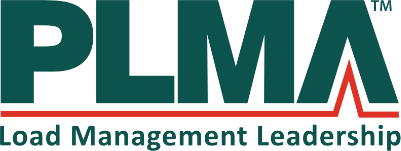PLMA Releases Fall Demand Response Market Trends SurveyAtlanta, GA, October 29, 2013 - Today the Peak Load Management Alliance (PLMA) released its Demand Response Market Trends Survey for Fall 2013 which measures responses from the Demand Response community on a host of topics. The research was sponsored by the Demand Response Directory and was conducted by Skipping Stone, who surveyed industry professionals in advance of this week’s 14th PLMA Fall Conference in Atlanta. Key drivers for continued growth in the commercial and industrial demand response markets are identified as technology and implementation costs and customer ROI combined with targeted utility incentives and ISO capacity markets. Consensus on reaching mass markets with demand response concentrated on utilities using outsourced service providers and fielding a sales force. Use of telemarketing, social media, bill inserts and other non-personal customer acquisition methods was believed to be significantly less effective. For municipal and cooperative utilities, the survey indicates that the two most compelling reasons for demand response programs were either avoiding wholesale price spikes or avoiding building new generation. With 65% agreeing, the biggest challenge for distribution utilities with demand response is predicting customer response behavior. On technology-related survey questions, the three somewhat related areas with the highest growth prospects are viewed to be building automation and controls, monitoring and decision automation and combined energy efficiency and demand response solutions. Progress in technology standards adoption is strong as over 80% of the companies surveyed have either adopted OpenADR2 or plan to in the near future. Among innovative ways to leverage demand response, utilizing it as a balancing agent for renewable generation remains a popular viewpoint, second only to battery solutions for renewable balancing. Survey results on use of up and coming grid interactive water heating programs indicate there is a need for more market education. "These survey results, combined with our recent member survey, will help shape the future direction of how PLMA adds value to our membership through education, programs, development of best practices and research,” said PLMA Chairman Paul Tyno of REGEN Energy. "The survey indicates that technology and service provider communities have adopted standards, driven costs down and have made customer adoption of Demand Response a more compelling and easier proposition. To truly derive the grid and environmental benefits demand response can deliver, there is considerably more customer participation needed. To facilitate further customer adoption, the market will also need regulators and utilities to offer economically viable customer incentive programs as well,” said Ross Malme, PLMA Executive Committee member and Skipping Stone Partner. For a free copy of the Report, visit www.peaklma.org/?page=Fall13Trends About the Peak Load Management Alliance. PLMA is a diverse organization representing numerous demand response entities, including utility companies, energy retailers, curtailment service providers, technology developers, equipment manufacturers, research groups and energy consultants. www.peakload.org About Skipping Stone. Skipping Stone is a different kind of energy consulting company. All of our consulting resources have worked in the energy industry and now choose to consult.Our specialty is collaborating with clients on ideas, strategies and tactics and then providing the array of complementary services required to turn those ideas into successes.From the drawing board to the P&L, we measure every engagement based on our clients’ success metrics. www.skippingstone.com About the Demand Response Directory. The Demand Response Directory is the only complete source of utility, ISO and service provider demand response program data and reports in the US, a comprehensive listing of services providers, and the Demand Response Free Library. The searchable DR program database also provides designations for DR programs that qualify for LEED credits. www.demandresponsedirectory.com |
